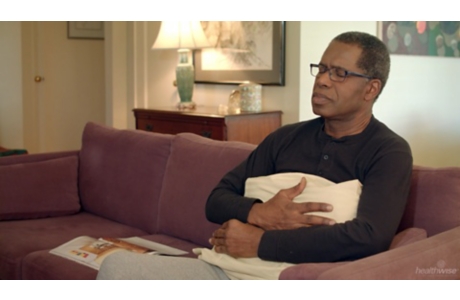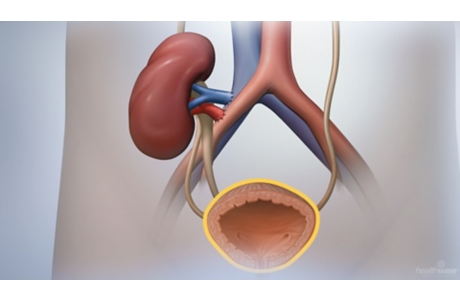Kidney Transplant
Surgery Overview
A kidney transplant is surgery to give you a healthy kidney from another person. The new kidney may come from someone you know. Or it may come from a stranger or a person who has died.
Before you have a transplant, you may need to have tests to see how well the donor kidney matches your tissue type and blood type.
To do the surgery, the doctor makes a cut in your lower belly. This cut is called an incision. The doctor places the donated kidney in your lower belly. Your own kidneys are not taken out unless they're causing problems. The doctor then connects the blood vessels of the new kidney to your blood vessels. The doctor also connects the ureter of the new kidney to your bladder. (A ureter is the tube that carries urine from the kidney to the bladder.) Then the doctor closes the incision with stitches or staples. The incision will leave a scar that will fade with time.
You need only one healthy kidney to live. The new kidney can do the work that your own kidneys can't do. It will remove waste from your blood. And it will balance your body's fluids and chemicals. Your new kidney may start to work very soon after surgery. Or it may not start to work well for a few weeks. If your kidney doesn't start to work right away, you will need to have dialysis until the new kidney can take over.
You will probably spend 5 to 10 days in the hospital. The doctor will remove the stitches or staples about 1 to 3 weeks after surgery.
Most people need to take about 4 weeks off from work. But it depends on the type of work you do and how you feel.
What To Expect
Within a few days, you may start to feel much better than you did before. But you may have some pain or soreness in your belly or side. It may take time for your new kidney to produce urine. So you may have to receive dialysis and take medicines, such as diuretics.
Most people go home from the hospital 5 to 10 days after surgery. It will probably take about 4 weeks before you can get back to your job or usual activities.
You'll have to take medicines every day from now on. Otherwise, your body may reject the new kidney. These medicines also make your immune system weaker. You'll be more likely to get an infection or become sick.
If your body starts to reject the kidney, your doctor may be able to stop the rejection. But if not, you'll need to have dialysis again or another transplant.
Watch
Why It Is Done
Kidney transplant surgery is done so that a healthy kidney (donor kidney) can do what your diseased kidney can no longer do. Kidney transplant is used when you have severe chronic kidney disease (renal failure) that cannot be reversed by another treatment method. You will not be able to have this surgery if you have an active infection, another life-threatening disease such as cancer, or severe heart or lung disease.
How Well It Works
If you have severe chronic kidney disease and choose to have a kidney transplant, you may live longer than if you choose to treat your kidney disease with dialysis alone.
In the past, transplants using a kidney from a first-degree relative, such as your father, mother, brother, or sister, worked best. But with modern antirejection drugs, kidneys from people you aren't related to work well too. Transplants from living donors or from deceased donors can succeed.
During the first weeks to months after your surgery, your body may try to reject your new kidney. This is called acute rejection. It occurs in about 1 out of 10 people in the first year after transplant.footnote 1 Most of the time, acute rejection can be treated with antirejection (immunosuppressive) medicines.
Risks
The risks of having a kidney transplant include:
- Rejection of the new kidney.
- Severe infection.
- Bleeding.
- Reaction to the anesthesia used for surgery.
- Failure of the donor kidney.
Credits
Current as of: November 16, 2023
Author: Healthwise Staff
Clinical Review Board
All Healthwise education is reviewed by a team that includes physicians, nurses, advanced practitioners, registered dieticians, and other healthcare professionals.
Current as of: November 16, 2023
Author: Healthwise Staff
Clinical Review Board
All Healthwise education is reviewed by a team that includes physicians, nurses, advanced practitioners, registered dieticians, and other healthcare professionals.
This information does not replace the advice of a doctor. Healthwise, Incorporated, disclaims any warranty or liability for your use of this information. Your use of this information means that you agree to the Terms of Use. Learn how we develop our content.



